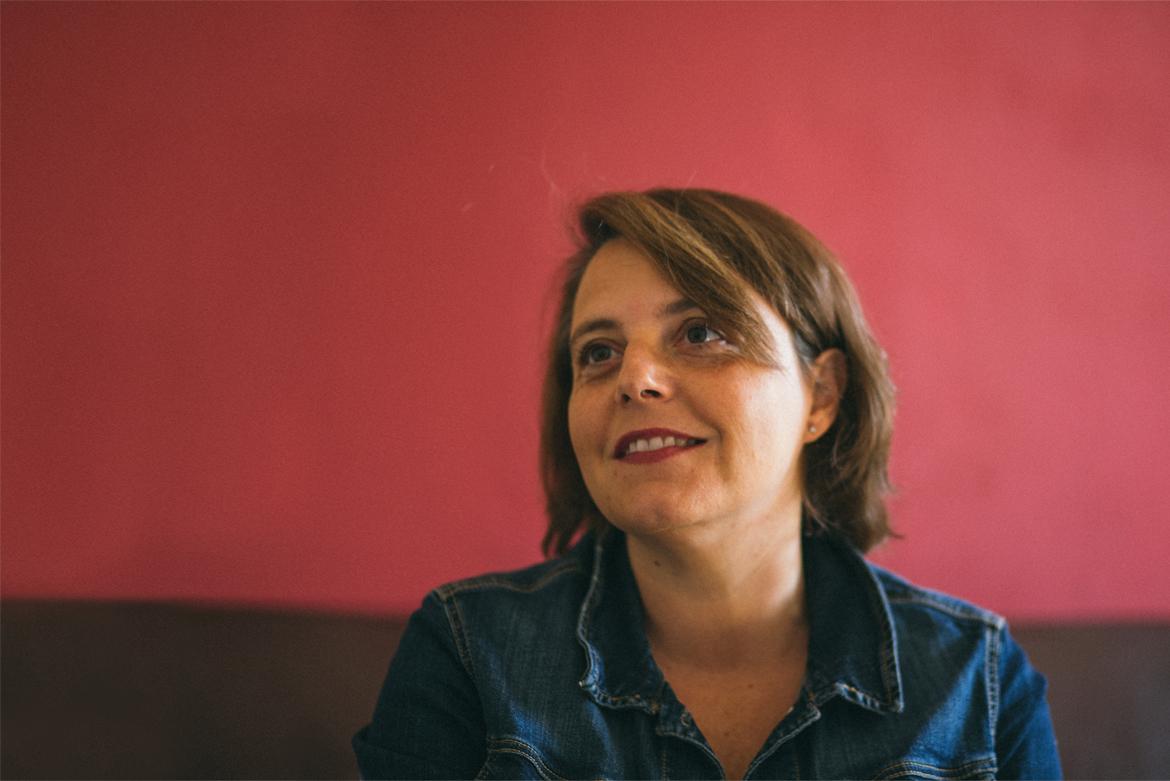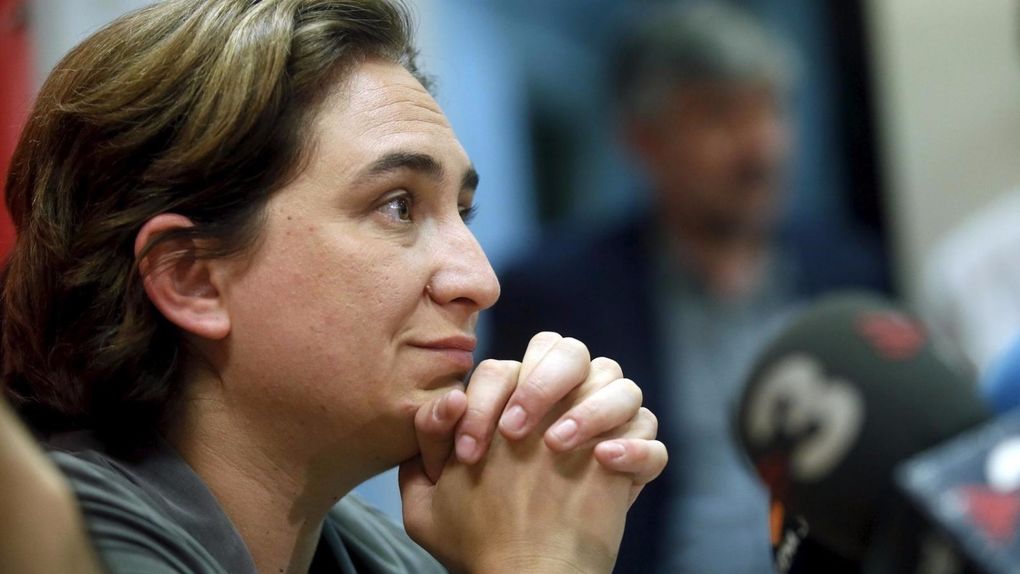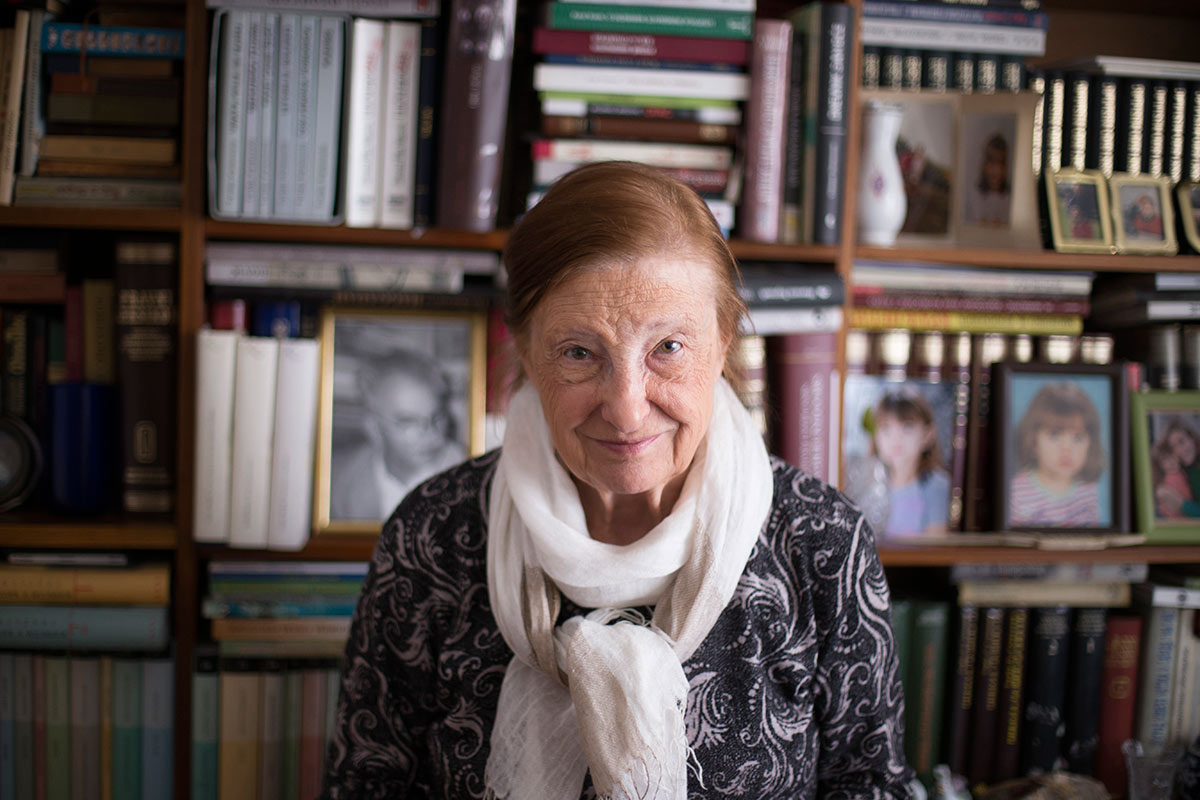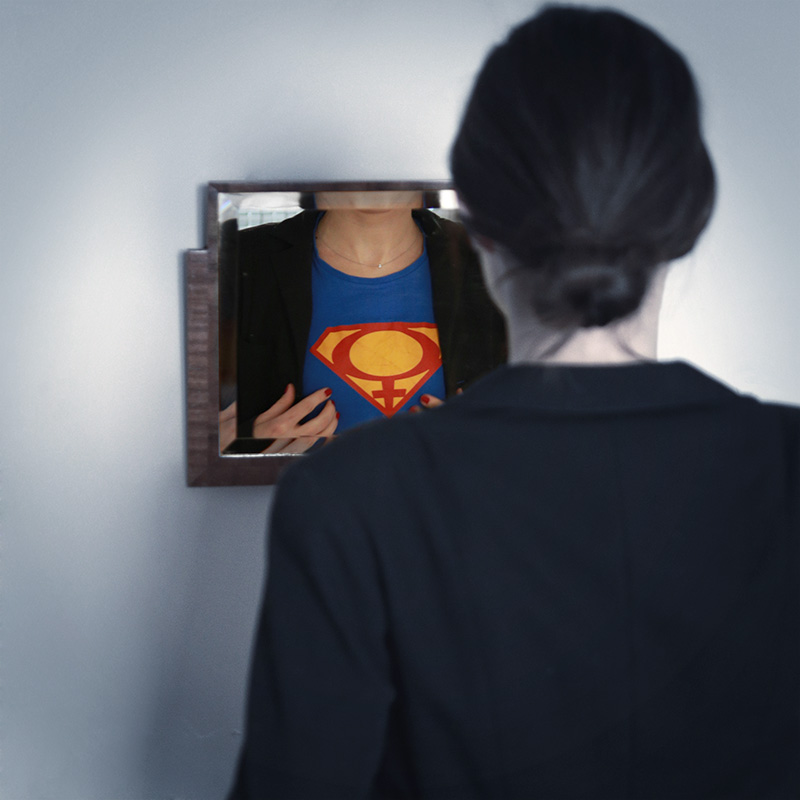
When I heard Ana Brnabic was set to be the new prime minister, one vivid image popped into my head : all of the local “bosses”, lifelong and god-given politicians, faces of authority in their suits and ties, popes and other moral guardians set to protect our tradition (who do nothing more than make sure nothing ever changes and they stay where they are, which is, ironically, absolutely nowhere), all of them sweating, looking at each other in disbelief while right before their eyes and against their will- things begin to change. I admit I was a bit entertained by it, imagining them having to think about it, change the way they speak, behave themselves while talking to this young woman coming into an important position, while nothing that she represents, how she looks and behaves, nothing resembles what they’re used to associating with power; in this image I see the rug being pulled from under their feet and their entire world collapsing over not being able to get over what happened.
Ever since the former minister Ana Brnabic was declared the main candidate for prime minister of Serbia, criticism directed towards the government, the new president Aleksandar Vucic- and Ana Brnabic herself- took a sharp turn for the worse. The deeply divided country came together in dissatisfaction. This time, the opposition- expectedly or not so- seems to be louder.
The news of the premier being a woman, of a different sexual orientation, Croatian by origin, blew up world media as very good and promising, especially coming from such a traditionalist Balkan country. As if prime minister positions have long since belonged to women in the rest of the so called civilized world. Serbia, however, was caught off guard.
On the topic of Ana Brnabic’s appointment, criticism, commentary, condemnation and lack of support, MILICA magazine talked with professor Jelisaveta Blagojevic, philosopher and head of the department for Comparative Conflict studies at the Faculty of Media and Communication in Belgrade.

Interviewed by:
Milica Laufer
Andrea Jovanović
What were your impressions when hearing the news about the newly appointed prime minister? It seems as if negative comments and criticism flooded the political and media scene.
What left the strongest impression on me was the frustration, the political immaturity and immaturity in general, the exclusion, intolerance, misogyny, homophobia- that came from the so-called Serbian liberal and so called Serbian left. It seems like they’ve finally united over it. This “harmonious” opposition was- expectedly or not so- the loudest in their reaction.
We’ve hear all sorts of theories, Ana Brnabic has been analyzed down to a T, her abilities and qualifications question, and deemed to be Vucic’s puppet.
Considering that Ana Brnabic is in politics for less than a year, we’ve somehow managed to judge her before she even took over as prime minister. I don’t think even Vucic and his entire administration faced such congruous and fiery criticism as Ana Brnabic did in the last few days.
To me that shows that this “liberal”, “independent” Serbia did what they accuse every government of doing. I notice a lynching atmosphere in which finally someone we deem worthy (a woman? Different? New?) came up for us to focus our dissatisfaction, frustration and individual tantrums on. Everything from being unhappy about our ubiquitous ruler Vucic, to the blind accepting of neoliberalism, the giving away of our land, irresponsible social politics, etc. The scapegoat for all of this (obviously largely justified) criticism became Ana Brnabic.
All of these are problems we have, and there are many more, but it seems like the left pushed all of it onto the head of someone they immediately deemed weak, even before the “almighty Vucic” himself started doing it.
Why did this happen, where did it come from? This is a question all of us need to think about and I believe the answer is even more disheartening that any story about why Vucic chose Ana Brnabic- be it pinkwashing, getting political points or using her, in whichever way, for his own gain.
But the political disagreement we’re faced with are so deeply rooted that the opposition loses all of its meaning when all they do is just disapprove and refuse to cooperate. Ana Brnabic became the target of this disapproval: nothing that comes from Vucic can be good, nothing that comes from this administration is worthy of “our” support.
A society would not be able to exist- or would be completely fascist- without disagreement.
Dissent is an essential characteristic of any social or political life, however, that’s not how we see it- disagreeing is seen as betrayal, rivalry and everyone retreats to their side- on one we have Vucic and his administration, on the other there’s all of us who don’t agree with him.
I believe, however, that politics in this country have to be discussed in a different way, that we need to figure out how to negotiate our differences because that’s how you get things going. Maybe this is why Ana Brnabic is seen as someone who betrayed this urban, leftist side and jumped in bed with “the enemy”. This is a naive and extremely dangerous way of thinking.
If someone else was in Ana Brnabic’s place right now, it would not make any difference. What matters is that the position of prime minister has the potential and capacity to exchange and negotiate with the public. As far as I know, and I’m not completely in the loop about how Ana Brnabic did her job as minister- there were areas that were greatly improved, while some say things were not that well done, and that’s all great- that’s all part of the disagreement and discussion we’re supposed to have.
On the other hand, I do feel like she gave a good example as how to open this sort of communication with different segments of our society. That’s what a premier should do.
What are your expectations? Is this a change?
My expectation may be modest, not radical or revolutionary enough, but for me, at least symbolically, Serbia will never be the same again. When I heard Ana Brnabic was set to be the new prime minister, one vivid image popped into my head : all of the local “bosses”, lifelong and god-given politicians, faces of authority in their suits and ties, popes and other moral guardians set to protect our tradition (which does nothing more than make sure nothing ever changes and they stay where they are, which is, ironically, absolutely nowhere), all of them sweating, looking at each other in disbelief while right before their eyes and against their will- things begin to change. I admit I was a bit entertained by it, imagining them having to think about it, change the way they speak, behave themselves while talking to this young woman coming into an important position, while nothing that she represents, how she looks and behaves, nothing resembles what they’re used to associating with power; in this image I see the rug being pulled from under their feet and their entire world collapsing over not being able to get over what happened.
If we as a society fail to recognize the importance of such a symbolic revolution and the redefining of our political imagination, if we don’t know what to do with it, then we need to take a good hard look at ourselves and question what we do to enforce these policies we criticize. I’m talking about a moment of change as one of the most important moments in politics: a change is happening right before our eyes, it’s neither revolutionary nor absolute but it’s a change, it’s something palpable we can and have to work with. Yes, there are problems, but we didn’t exactly prove ourselves accepting even with gifts. Is it pinkwashing? Sure is, but it’s not just that.
There’s this story that Vucic is using Ana Brnabic. I think that interpretation is in itself misogynistic and homophobic. But the worst thing about it is that it paints Vucic as this omnipotent and omnipresent figure. We criticize him for being a totalitarian authority figure, but we give them that power with these sorts of stories. I like thinking about it differently: Ana Brnabic is using Vucic. Why not?
I’d like to add, also: the way I understand activism- human rights, women’s rights, LGBT rights, minority rights, etc- I think it entails standing up to hate speech no matter who it’s directed to, even the prime minister. I don’t think that happened, unfortunately. In a country where a vast majority of, for example, LGBT activists, still hide their identities- that they did not recognize and support such a gesture, even if it comes from Aleksandar Vucic, that makes it all the worse. Those are the kinds of problems we’re facing.
We’ve heard a lot of good about Ana from people who know her privately. Although private becomes less important when serving a public function, what’s your impression of her?
Ana strikes me as a capable young woman, brave and ready to take on a challenge…but what I find most fascinating is the enthusiasm she has for her work; she and her team seem genuinely into what they’re doing, they seem to want to start something and change something.
When I hear “government administration” I picture dusty offices and people sitting around, drinking coffee, waiting to go home. I guess that’s why I find her enthusiasm so striking.
Her style, her hair, the way she talks, even the way she carries herself really stands out from the picture of a “typical woman”, especially a woman in politics. Ever since she became a minister Ana has been ruthless, refusing to step aside and just nod, even adopting a sort of arrogance that we’re used to seeing in her line of work. In this context, do you think that the space that this woman has managed to conquer in politics carries importance?
It’s a very important thing to notice. It comes with changing the symbolism of politics and creating new political frameworks. The role and significance of body language and spacial relationships in politics is more and more becoming a topic of serious discussion. She really does push boundaries in this sense, she’s even provocative. No matter how sceptic (or not) we are about her appearance in politics and Serbia’s public spotlight- something already happened- and it doesn’t matter if that was the intention of the people who put her there or not- Serbia will never be the same again.
All of this serves to remind us of a key factor in politics- even what’s impossible is possible here.
Yet we’re surrounded by complete disbelief that a change is actually happening? Reluctance because it’s coming from The Other Side? Does the Serbian left wing even crave change, since it seems to only function when criticizing and disagreeing?
Everything seems to be analyzed and looked at from a black and white perspective. I don’t doubt that Vucic has his own agenda in this, I don’t think anyone can doubt that, but why do we choose to make this more important, and make it the only way we interpret this change? Why can’t we see any potential? I think it shows our inability to change. In that sense I think the so called left wing of Serbia may be extremely conservative, although masked. It’s becoming to look like a sort of professionalization of criticism: there’s this wonderful term coined by professor Lauren Berlant- “cruel optimism”, and this really is a great example of how hard it is to break ties with being the victim, to free yourself from the optimism and possibility that the habits of history might not repeat themselves- it’s very dark and negative process if you’ve built your whole identity around it, from personal relationships to social and political positioning.
My idea is not to defend or praise Ana Brnabic. I trust she can do that herself. The point of this conversation, I hope, is a criticism of the reaction of liberal Serbia which, to my opinion, perpetuates the status quo and the immutable social and political positions.
Lastly, Ana Brnabic did not choose Vucic for president- Serbia did, the people who voted for him as well as the ones who fail to come up with a decent alternative for years. The only true victims of this political swamp are the people whose lives are at stake, the poor, oppressed and humiliated who no longer even share a reality with the political, or elite of any kind. As far as I’m concerned, whoever acknowledges this as the greatest political problem we’re faced with today- gets my support.
Serbia will never be the same again?
When I say that, I don’t necessarily mean it’s a good thing. No change is inherently good or bad, but it’s different. It’s what we make of it that matters.
I’m saying- a promise should not be considered an accomplishment.




